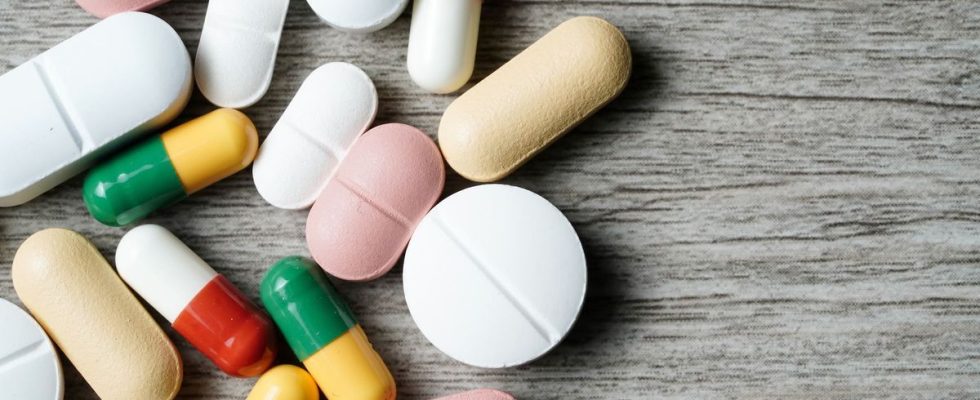Published on
Updated
Reading 2 min.
Tuesday June 13, the Ministry of Health unveiled a list of 450 drugs deemed “essential” whose stocks will be closely monitored to avoid new shortages. On what criteria were these drugs chosen? What medications are on this list? Explanations.
Two days ago, Emmanuel Macron presented in Ardèche a plan to relocalize the production of medicines in France. Around fifty so-called “essential” medicines are concerned. Among them, 25 will see their production relocated or increase significantly in the coming weeks. This measure is part of a broader action plan to combat shortages which includes other government actions. Among them, increased monitoring of stocks of 450 drugs qualified as “essential”.
Implement measures in the face of a probable shortage
The objective of this list is to anticipate a possible shortage for a given molecule and apply an action plan (roadmap to come in the coming weeks) to avoid it. The roadmap must ensure the availability of at least one essential medicine in each class of medicine for a given pathology.
In an interview given to our colleagues at Parisianthe Minister of Health, François Braun, explained that manufacturers “must have four months of stock” for the molecules appearing in the list.
Several learned societies worked on developing this list. They were based on several criteria to include this or that drug. In a press release published on June 13, the Ministry of Health explains that this list is “based on the clinical practice of French doctors, on the criticality of the need and the emergency nature of the medical specialty (infectiology, endocrinology, anesthesia-resuscitation, etc.)”. The government also specifies that the selected drugs “were made with the aim of offering high quality medicine, for each major organ (heart, kidney, brain, etc.)”.
Also note that 4 out of 10 drugs in this list have been reported to have broken in the last two years.
The medicines concerned
This list contains in particular medicines associated with public health plans:
- Medications that help fight addictions such as nicotine replacement treatments (patches, chewing gum, etc.) or naloxone (opioid addiction).
- Medicines used for voluntary termination of pregnancy (misoprostol) or emergency contraception (Levonorgestrel).
- Mandatory or recommended vaccines.
Among the molecules placed under surveillance, we also find drugs indicated to treat chronic diseases (diabetes, hyperthyroidism, etc.), cardiovascular disorders (deep vein thrombosis, hypertension) or even cancers.
If you want to know if your treatment is on this list, you can use a search engine. Several media like Franceinfo Or The Parisian have made this tool available on their site.
